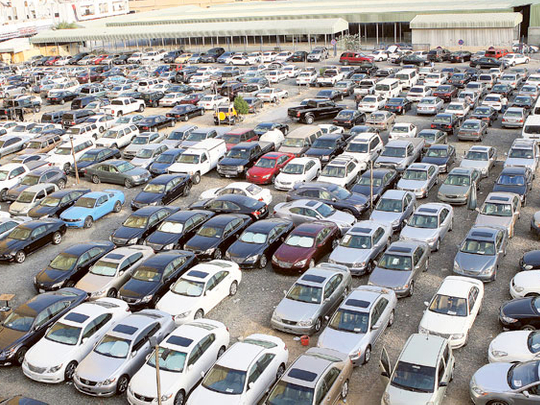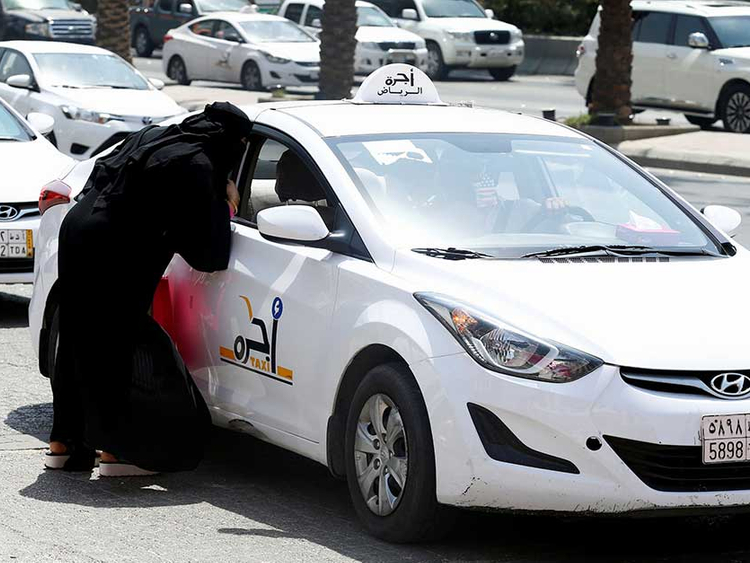
Dubai: It won’t just be Saudi women who are gearing up to get behind the wheels when the Kingdom puts its final stamp of regulatory approval by June next. The UAE’s automotive industry, especially those with sizeable second-hand operations, are just as keen to hitch a ride.
Industry sources suggest that by the first or second quarter of 2018, there could be opportunities to push significant volumes of pre-owned vehicles into that market. Especially of models belonging to premium brands or SUVs and crossovers.
And factors that could push up costs — such as VAT (value-added tax) — would not be as relevant, since the surcharge would only apply on the seller’s profit margins and not on the overall value of the vehicle. And the import duties would already have been paid once the vehicles reached a UAE port.
Saudi Arabia’s new car sales in good years have averaged about 700,000 units, but those numbers have come down drastically since 2015. Current estimates place these in the 500,000 units plus range.
UAE’s new car sales during 2016 were above 300,000 units, having been hit with a 20 per cent drop from 2015 levels. In the year-to-date, the market is down by another 20 per cent.
The UAE’s second-hand automotive retail sector is at a far more advanced stage than its counterpart in the Kingdom. If there is a sudden spike in demand for pre-owned vehicles next year, retailers here are willing to meet that demand more than halfway.
“There could be a rush of new women buyers among the 9 million or so eligible to drive,” said Declan McCluskey, Managing Director of Al-Futtaim Automall. “But to suggest that it would push new car volumes to a million or million plus immediately is not reality.
“For one, a lot of women already own cars in Saudi Arabia, but are driven around.
“So, if they currently have mid-range sedans, chances are with the new law, they will want to drive an upgrade or a more premium model. That’s what is more likely to happen — a change in the vehicle preference mix, with crossovers being among the more in-demand vehicles.”
Much also depends on the financial circumstances of the individual. “There are pockets of lower income, and they could naturally be receptive towards pre-owned vehicles,” said McCluskey. “Pre-owned volumes are not that high in Saudi Arabia now.
“If a change happens from mid-2018, a lot of the sourcing of pre-owned units would come from the rest of the Gulf markets. It could mean a hardening of residual values on second-hand cars, especially of the more premium models.”
UAE’s auto sector itself could do with a lift, both for brand new and pre-owned cars. And if Saudi Arabia provides the necessary lift, so be it.
“Any which way one looks at it, there will be an unleashing of pent-up demand at some point,” said Ajit Kumar, CEO at Al Naboodah Commercial Group. “But no one should expect that to happen overnight — a lot of legislation needs to move before Saudi women can move around on their own.
“Saudi Arabia will need to see a lot more activity with driving schools, and these instructors need to be women. All of that nitty-gritty detailing will have to be accounted for first.
“But anything that leads to sustained demand for vehicles will have positives for the Gulf’s auto retail space as a whole.”
In recent years, a couple of UAE dealerships have ventured out on their own into Saudi Arabia. In fact, the kingdom’s auto retail space has gone through quite a transformation as global manufacturers pushed for greater exposure. And they were willing to change long-time dealer alliances if those results were not coming through.
“If a matured dealer franchise option comes around in Saudi Arabia, we will be keen to pursue it,” said Kumar. “It could be that allowing women to drive in Saudi Arabia can drive a market upturn for two to three years.
“But for a more sustained rally, the Gulf markets will still need to see oil prices further north then where they are today.”
BOX
The many ways change in Saudi Arabia can show up
* The benefits for the auto sector from allowing women to drive in Saudi Arabia needn’t be limited to the kingdom. With all those new licenses getting issued, it is more than likely this will show up across the Gulf. “With that freedom of movement, intra-GCC travel could be in for gains, and that can only mean good things for car-hire companies,” said an industry source.













